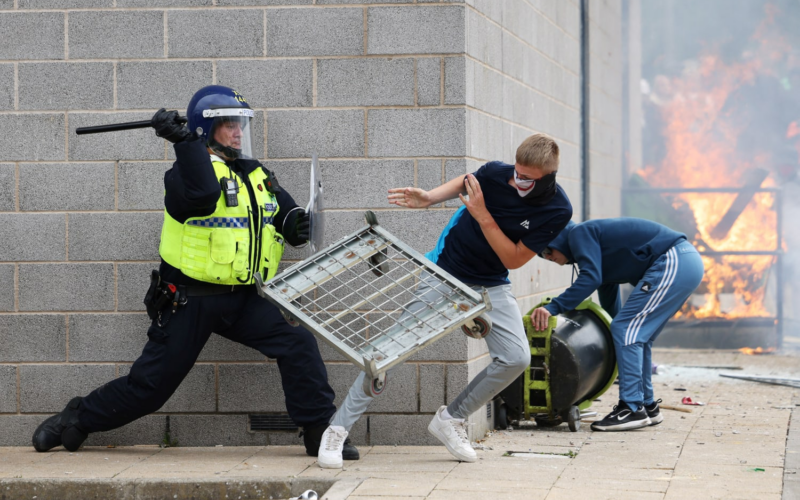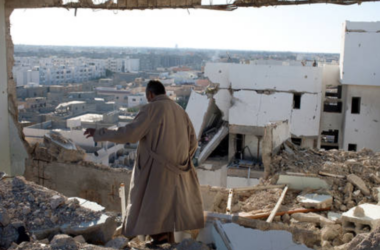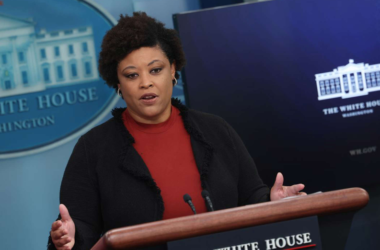As Britain braces for further unrest, it’s becoming increasingly clear that the Labour government under Prime Minister Keir Starmer is struggling to maintain order and protect its citizens. The nation has been engulfed in a wave of violence following the tragic murder of three young girls in northwest Britain. Instead of addressing the root causes of public outrage, the government has chosen to label all protesters as “far-right,” disregarding the genuine concerns of those who feel betrayed by their leaders’ inability to ensure safety and security.
The catalyst for this unrest was a horrific knife attack that claimed the lives of three innocent girls. However, what followed was a surge of misinformation online, falsely accusing an Islamist migrant of the crime. While these false claims undoubtedly fueled tensions, the Labour government’s response has been woefully inadequate. Instead of addressing the public’s fears and working to restore trust, the government has focused its efforts on demonizing the protesters, branding them as extremists and dismissing their grievances.
Prime Minister Starmer, facing his first major crisis since taking office, has vowed to crack down on the unrest with harsh penalties for those involved. However, this heavy-handed approach fails to acknowledge the deeper issues at play. The government’s focus on punishment rather than understanding has only served to alienate large segments of the population who feel that their concerns about immigration and public safety are being ignored.
In cities and towns across the country, small groups of protesters have clashed with police, targeting hotels housing asylum-seekers and chanting slogans like “get them out” and “stop the boats.” These actions, while certainly extreme, reflect a broader frustration with the government’s failure to manage immigration effectively. The Labour government has been quick to label these protesters as “far-right,” but this oversimplification ignores the legitimate concerns of citizens who feel that their voices are being drowned out in the current political climate.
The government’s response has been to mobilize a “standing army” of 6,000 police officers to quell the unrest. While law and order are undoubtedly important, this militarized approach does little to address the underlying issues driving the protests. By focusing solely on suppressing dissent, the Labour government is missing an opportunity to engage with its citizens and address their concerns in a meaningful way.
Anti-fascist and anti-racism groups have also mobilized in response to the protests, organizing counter-demonstrations across the country. While these groups are often portrayed as defenders of tolerance and inclusion, their actions can sometimes contribute to the very tensions they seek to defuse. The government’s support for these counter-demonstrations, while neglecting to engage with those on the other side of the debate, only serves to deepen the divide.
Prime Minister Starmer has promised a “reckoning” for those involved in the riots, but what Britain needs now is leadership that seeks to unite rather than divide. The current approach of labeling all dissent as far-right extremism is not only unfair but also dangerously dismissive of the real concerns that many citizens have about immigration, public safety, and their own future in a rapidly changing country.
In times of crisis, it is the government’s responsibility to protect its citizens, listen to their concerns, and work towards solutions that address the root causes of unrest. The Labour government’s failure to do so, combined with its tendency to dismiss all opposition as extremist, is only exacerbating the situation. If Britain is to move forward from this period of turmoil, it will require leadership that is willing to engage with all sides and find common ground, rather than resorting to divisive rhetoric and heavy-handed tactics.








